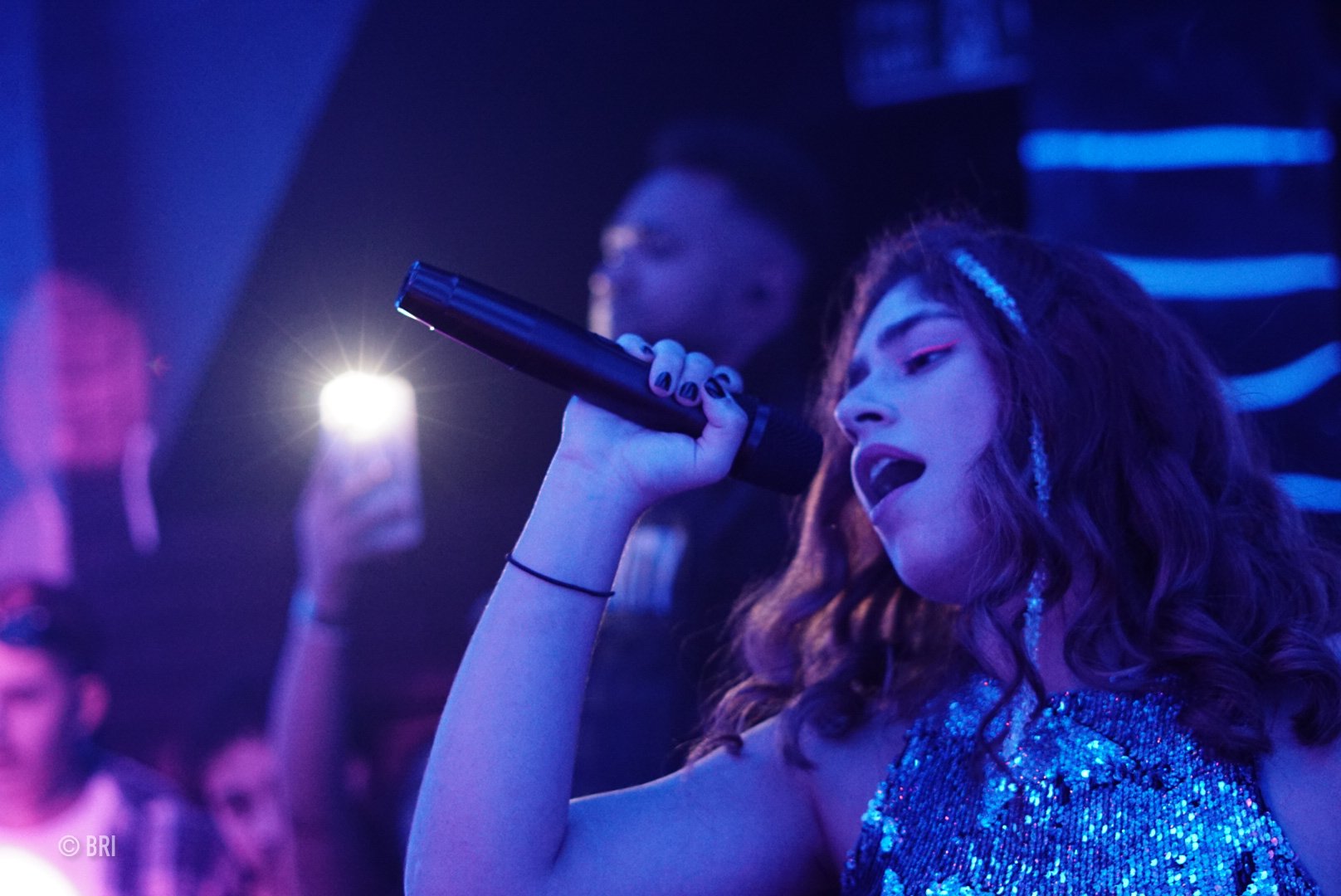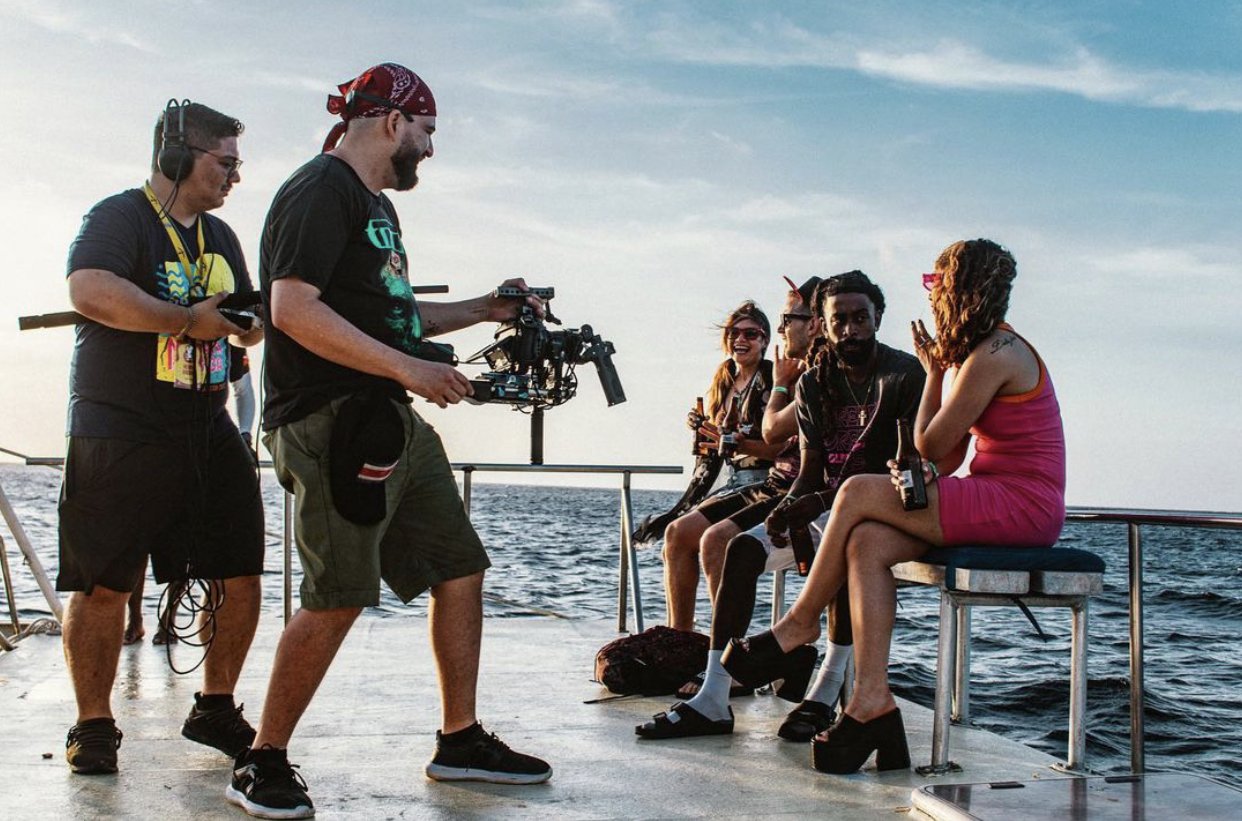Ana Bulnes is the first female Honduran producer, empowering women with her vocals
Interview by J-Fresh: DJ, Presenter, Curator at BBC Radio 1, 1xtra, KissFM, Pyro Radio and Made in the UK
The Latin American community is the fastest growing population in the UK with over 145,000 Latinos residing here. In addition, Latin music is currently trending #1 globally and boasts global superstars like Bad Bunny, Karol G, Rosalia, Rauw Alejandro, Becky G and many others. Despite this, Latino music in the UK struggles to be visible as a community and within the music scene. Why is this? We sit down with Ana Bulnes, a Honduran music producer, singer and songwriter who travels the globe on her quest to empower women, not only with her lyrics but also with her story, to find out more.
As a native Spanish speaking artist, do you have to adapt/be aware of your command of the English language when performing to UK crowds?
Yes and no. Being in the UK is definitely a challenge if you are singing in another language. However, the UK had such a variety of artists and musical styles. Afrobeats is a great example of how the UK can adapt to languages. We consume artists like Rema and Burna Boy and we dont understand what they are singing but we vibe to the music! I think any market can be adapted and it really relies on the music industry and what they decide to push.
I will say that crowds can be tough if they aren’t fully a Latin audience, but the most important thing is to connect. People will enjoy it and most of the time they can feel it.
Latin music is global, and that just shows that language isn’t a barrier, the lack of representation and support is.
What are the biggest challenges facing the Latin American community in gaining more exposure from the various UK music scenes?
I would say the biggest one is visibility and acknowledgement by the British culture. Many other cultures are very visible even when they are a minority but with the Latin community there’s a lack of education in terms of visibility.
We don’t even have our own box in application forms, we constantly tick the “other” box. Those are conversations that companies and the general population need to engage in.
When looking at record labels, they are a critical part of the musical eco-system. How damaging is it to have so few active record labels in UK Latin music? Why is this?
Extremely damaging. In order for artists to thrive there needs to be an infrastructure in place. It reminds me of back home. There is so much talent and great quality but no one is supporting and eventually, artists leave their artistic path because they keep fighting the system and It’s very hard to achieve great things like that. This is why most leave- like me.
In terms of the UK it is a different scenario: we are in one of the best music industries in the world. It shouldn’t be this difficult to get the support especially with our music. More than record labels I think we need to see the bigger picture. We need support from the industry in general. Radios are still rejecting us sometimes, events aren’t particularly looking to expose our community. Festivals play a big part too, they aren’t giving us the space.
There are many artists who have their own record label, is this something you will look into? If so, what will you hope to achieve?
I think as independent artists we are our own labels now. It depends on how you do it. I do everything that a label does. I fund my music, make my own marketing strategies, get myself into radios and get my own gigs…
I have my own team and push and work as hard as I can! It can always be better but for now I am my own mini developing label!
The global music scene is heavily male dominated and the UK Latin music scene is no different. What are the extra challenges you face being a female operating in this space?
As a Latina, being so sexualized is personally challenging. I’m trying to combat that through my music, by making a very sexualised genre [Reggaeton] in a non-sexual way.
Walking into a room and being stereotyped is the biggest one but also having to prove myself 10 times more. Sometimes it is draining. It’s also a challenge that there are fewer females in the music business side of things here in the UK. I hope I can make this happen as I work towards change!
How difficult is it to be lyrically: vulnerable, open and honest with the music you release?
Not difficult at all. I make music for myself first above all. I don’t really care what people might think - I just like creating and being myself. I just make music and don’t think about it too much!
Was it a conscious decision to release music that is specifically non-explicit? Why do you do this? Is latino music too sexual?
It was. The original thought came from “my sisters will listen to this”. Then I thought all of the music that we listen to is so sexual. If I want as many people to listen to this, I need to keep it positive and clean.
That way, your grandma, your sisters and 10 year old cousin can play my stuff. They will also listen to great messages!
I also need to clarify that I'm not against sexual lyricism, but I am against lyrics that denigrate women heavily. It’s when we are objectified that there’s a problem. We deserve more respect.
It also comes from breaking rules. I’m a rebel. I’ll set the tone myself!
Lets do this thing called Reggaeton and talk about family and friendships and spaceships!
As the first female Honduran producer, do you feel any pressure or responsibility to inspire others?
I want my lyrics to educate others about the world, kindness, empowerment and so many other things. If I can do it we all can!
I don’t think It’s particularly to music, anyone can take what I’m doing and utilizing that to just do it.
I’m big on risk taking. What are you waiting for?
Just do it!
Your musical journey includes completing a bachelor's degree in Music Recording and Production. What's the biggest lesson you learned from studying music at an academic level?
Creating without motivation.
As a student I had assessments and I didn’t always have the passion to create or the emotional state of mind to get into it in that moment but I still had too.
That gave me a lot. When you are an artist you need to keep going, you need to keep creating otherwise you loose momentum.
Learning how to be disciplined is a game changer.
Discipline is as or more important than your talent.
Follow Ana bulnes on instagram,spotify and soundcloud
interview by j-fresh
J-Fresh is a radio presenter, producer and DJ whose productions regularly feature on BBC Radio 1, 1Xtra, KISS and KISS Fresh from industry gatekeepers such as Rickie, Melvin & Charlie, Charlie Sloth, Rude Kid and DJ Target.
In addition to accumulating thousands of Youtube views and Spotify playlists on his own releases, J receives major support from Mixmag, Highsnobiety, Link UP TV, RWD, Spotify and GRM Daily. J-Fresh maintains a weekly radio show on Pyro Radio and is a go-to favourite amongst national radio stations that see him provide regular exclusive mixes for BBC Radio 1Xtra and KISS FM.






